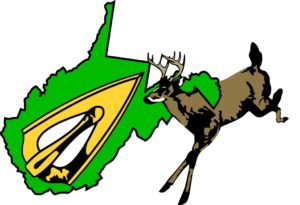WVPL Partner Spotlight: West Virginia Bowhunters Association
Established in 1981, and with over 3,000 members hailing from every county in the state, the West Virginia Bowhunters Association (WVBA) is one of the oldest, largest, and most respected sportsmen’s organizations in WV.
Hunters have played a critical role in conservation and public lands issues for over a century. President and avid hunter Theodore Roosevelt is credited with establishing the Forest Service and protecting over 230 million acres of public land by establishing 150 national forests, 55 wildlife preserves, 18 national monuments, and five national parks.
The sportsman’s legacy in conservation continues to this day. Both the Pittman-Robertson and Dingell-Johnson Acts use taxes on sporting goods like rifles, bows, fishing poles, boat fuel, and ammunition to fund federal and state programs that provide essential support for fish and wildlife conservation. License fees have contributed to the purchase of nearly 400,000 acres of West Virginia public land designated as wildlife management areas.
But with the national decline in hunting and fishing participation, and the funding sportsmen bring to the table, the quality of habitat and access on our public lands may suffer. Less federal funding cripples the ability of our state fish and wildlife agencies to act locally to protect habitat for both game and non-game species alike. That’s where groups like WVBA step in.
WVBA views a strong public lands system and sound public lands management as essential to their primary goals to protect, preserve, and promote the sport of bow hunting. “We must protect access to public lands to increase opportunity for sportsmen” says Justin Hettick, President of WVBA. “More hunters afield in the coming generations will preserve our hunting heritage while continuing to pour millions of dollars annually into wildlife and habitat conservation in West Virginia.”
Justin is proud to bring WVBA into the West Virginians for Public Lands alliance and regrets that sportsmen and environmental groups have often been at odds over the years. He believes that “the “hippies vs. rednecks” view is counterproductive and inaccurate, as more and more environmentalists have embraced hunting as part of a sustainability/locavore approach to food. Furthermore, recent years have seen a surge of environmental activism on the part of sportsmen, who have begun to recognize that healthy wildlife populations begin with clean air, woods, and water.”
“The bottom line is that sportsmen and environmentalists agree on the vast majority of the issues that face our public lands, habitat, and fauna” Justin continues. “We all want clean air, clean water, and access to wild places. Whether we want to sit in a tree stand, watch birds, hike, bike, or fish. The time for infighting is over. We are all stakeholders of our natural resources, and we have more enemies in Charleston and Washington than ever before. We’re better off working together toward common goals.”
The West Virginia Bowhunters Association is leading the fight on public lands issues involving ATVs on state forests and wildlife management areas. Senate Bill 594 would allow ATV access on wildlife management areas. Senate Bill 498 would create a two-year “pilot project” for ATV access in Cabwaylingo State Forest. For Justin and WVBA the potential consequences of these bills are twofold. There are habitat impact concerns including increase noise and human pressure that could stress wildlife and force them off state land, effectively making them off limits to the general public. As an avid fisherman too, Justin references a study in western Maryland that found increased sedimentation from ATV stream crossings can negatively impact native brook trout. This finding ultimately led the Maryland DNR to close some state lands to ATVs.
But WVBA also believes that ATVs present equality and access issues for our public lands. ATVs provide those with the means to afford one an unfair mechanical advantage in claiming prime hunting locations. Imagine the frustration of a hunter who sets out on foot well before dawn from a WMA parking area only to be passed an hour later on the trail by another hunter riding an ATV in a race for ideal hunting spots. Justin points out that the state already makes accommodations for hunters with physical disabilities, suggesting that argument has been used as a red herring in the debate at the State Capitol.
West Virginians for Public Lands is thankful to have the West Virginia Bowhunters Association as a partner that shares our goal of promoting responsible management of our federal and state public lands. WVBA brings an important sportsman’s voice and a longstanding conservation ethic to today’s public lands issues.
If you’d like to learn more about the West Virginia Bowhunters Association or would like to take action against ATVs on state lands, visit westvirginiabowhunters.org and like them on Facebook.





